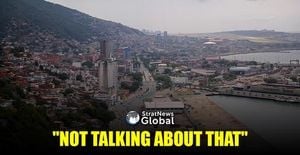The Dutch government has launched an initiative aimed at mapping the supply chain of scarce raw materials, which are becoming increasingly pivotal not only for domestic production but also for sustainability efforts.
Commissioned scientists from the Netherlands Materials Observatory (NMO) will analyze how Dutch companies procure these materials, whose significance cannot be overstated—especially with recent geopolitical tensions affecting global supply chains. According to RTL Nieuws, Allard Castelein, the special representative of raw material strategy, emphasized the urgency of this initiative, stating, “These are substances we hardly find in Europe.”
These ‘critical’ raw materials include lithium, cobalt, nickel, and copper—all necessary for various applications ranging from smartphones to renewable energy solutions, medical devices, and national defense systems. The Ministry of Economic Affairs is particularly concerned about ensuring the Netherlands does not become overly reliant on any single country for these supplies. Minister Dirk Beljaarts remarked, “Our picture is still incomplete and we cannot act fast enough when necessary,” underlining the importance of real-time data and analysis to navigate the growing threats to resource availability.
The NMO officially launched its operations, which involve collaboration among national government, research institutions, and private businesses, to collect data and provide insights on material flows relevant to the Netherlands and the EU. This initiative aims to preempt supply security risks by allowing policymakers and industry leaders to respond swiftly to potential shortages.
The new observatory plays a dual role: it will not only monitor supply chains and inventory their compositions but will also assess the impact of any supply disruptions. For example, the observatory's efforts will align with the European Critical Raw Materials Act, and it will be pivotal for achieving the EU's sustainability targets.
Tirza van Daalen, Director of TNO Geological Survey of the Netherlands, noted, "The NMO brings together multiple areas of expertise, including geology, knowledge of supply chains and material flows, and knowledge of material circularity." With this diverse approach, the NMO aims to bolster the Netherlands's preparedness against supply uncertainties.
Beyond the direct economic impacts, the importance of having access to these raw materials cannot be understated. The European Union has recognized 34 materials as “critical,” with 17 of those classified as “strategic.” These materials are predominantly sourced from regions like Canada, Australia, and several African nations, indicating the complex geopolitical dynamics at play. With countries like China aggressively pursuing control over pivotal resource chains, the Netherlands is positioned at the intersection of supply security and geopolitical strategy.
Strategic assessments conducted by the NMO will provide relevant indicators about material availability, allowing for informed strategic planning. This initiative is not only about maintaining current production levels; it’s fundamentally about securing the future, enhancing resilience within the economy, and positioning the nation favorably within global supply networks.
This proactive step signifies the Netherlands’s commitment to safeguarding its technological future and sovereignty over its resource supply. With climate change and sustainability taking center stage, the role of materials like lithium and cobalt will only continue to grow.
By preparing to analyze and monitor these markets effectively, the Netherlands aims to facilitate smoother transitions to renewable technologies and reduce vulnerability to external shocks. The country seeks to understand its dependency on global supply chains, particularly as pressures mount within the international political and environmental arenas.
Given the urgent nature of these discussions and the potential fallout of supply disruptions, stakeholders from various sectors must align efforts toward ensuring sustainable and responsible sourcing practices. The Ministry of Economic Affairs is poised to lead these conversations, with the NMO serving as the linchpin for future endeavors.
Finally, as countries worldwide grapple with their reliance on specific resources, the NMO’s findings could serve as the basis for broader discussions throughout Europe—highlighting the interconnectedness of resource availability and environmental sustainability.



